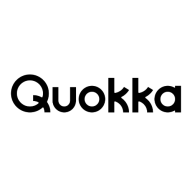

GitGuardian Platform and Q-mast are competing products in the realm of code security solutions. GitGuardian Platform is considered to have the upper hand due to its comprehensive features and ease of deployment, while Q-mast appeals with its pricing strategy offering better ROI.
Features: GitGuardian Platform includes robust secret detection capabilities, automated alerts, and detailed code analysis. Q-mast focuses on integration with various CI/CD pipelines and provides extensive reporting tools. The primary distinction is GitGuardian Platform's focus on seamless threat detection, whereas Q-mast prioritizes integration and data visualization.
Ease of Deployment and Customer Service: GitGuardian Platform offers a straightforward deployment model with dedicated support for rapid onboarding. Q-mast provides flexible deployment options but might require more configuration during the initial setup. GitGuardian Platform's dedicated support team enhances customer confidence, and Q-mast focuses on customizing solutions to individual needs.
Pricing and ROI: GitGuardian Platform has a higher setup cost but delivers substantial ROI through its advanced features and efficient threat mitigation. Q-mast is more cost-effective, attractive for budgets at the potential cost of some advanced functionalities provided by GitGuardian Platform.

GitGuardian helps organizations detect and fix vulnerabilities in source code at every step of the software development lifecycle. With GitGuardian’s policy engine, security teams can monitor and enforce rules across their VCS, DevOps tools, and infrastructure-as-code configurations.
Widely adopted by developer communities, GitGuardian is used by more than 500,000 developers and is the #1 app in the security category on the GitHub Marketplace. GitGuardian is also trusted by leading companies, including Instacart, Genesys, Orange, Iress, Beyond Identity, NOW: Pensions, and Stedi.
GitGuardian Platform includes automated secrets detection and remediation. By reducing the risks of secrets exposure across the SDLC, GitGuardian helps software-driven organizations strengthen their security posture and comply with frameworks and standards.
Its detection engine is trained against more than a billion public GitHub commits every year, and it covers 350+ types of secrets such as API keys, database connection strings, private keys, certificates, and more.
GitGuardian brings security and development teams together with automated remediation playbooks and collaboration features to resolve incidents fast and in full. By pulling developers closer to the remediation process, organizations can achieve higher incident closing rates and shorter fix times.
The platform integrates across the DevOps toolchain, including native support for continuously scanning VCS platforms like GitHub, Gitlab, Azure DevOps and Bitbucket or CI/CD tools like Jenkins, CircleCI, Travis CI, GitLab pipelines, and many more. It also integrates with ticketing and messaging systems like Splunk, PagerDuty, Jira and Slack to support teams with their incident remediation workflows. GitGuardian is offered as a SaaS platform but can also be hosted on-premise for organizations operating in highly regulated industries or with strict data privacy requirements.
Q-mast enhances mobile app security by embedding it into development workflows to detect risks before release. It provides defense-grade app scanning leveraging threat research to identify vulnerabilities and insights.
Designed for mobile developers, Q-mast empowers security and development teams to mitigate issues early, reducing costs and limiting zero-day attack exposure. Its capabilities in scanning and risk identification are backed by extensive threat research, making it a critical tool in app development lifecycles.
What are the key features of Q-mast?Q-mast is widely implemented across industries to prevent data breaches and fraud. It is especially favored in finance and healthcare sectors for compliance support, proving essential in highly-regulated environments.
We monitor all Static Application Security Testing (SAST) reviews to prevent fraudulent reviews and keep review quality high. We do not post reviews by company employees or direct competitors. We validate each review for authenticity via cross-reference with LinkedIn, and personal follow-up with the reviewer when necessary.